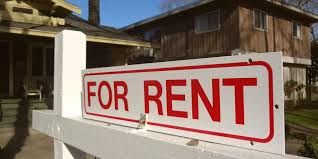Michigan Rent Increase Laws 2024: Key Facts for Tenants. Understanding Michigan’s rent control regulations can give you much-needed answers, whether you’re a landlord or a tenant. Knowing the laws will assist landlords decide how much they can raise rent without violating the law.
However, tenants might gain from being aware of their rights and comprehending how landlords can increase rent. In this manner, renters won’t be caught off guard by unexpected rent increases and will have time to plan for them.
We shall talk about rent control in Michigan in today’s article. Regardless of your position—landlord or tenant—we hope that by the end of this essay, you will have a better grasp of Michigan’s rent control legislation.
Key Takeaways
- In Michigan, rent control is prohibited. As long as they follow the provisions of the rental agreement or give at least 30 days’ notice (for renters who have been at the property for less than a year; 60 days’ notice is necessary for tenants who have been at a property for more than a year), landlords are free to raise the rent by any amount.
- Landlords can maintain compliance and establish prices depending on a number of criteria, including the state of the market, by being aware of Michigan’s rent control legislation. Tenants who are aware of these rules can also prepare for future rent increases, make wise financial decisions, and assert their rights in the event that they believe their rent was raised unfairly, retaliatorily, or discriminatorily.
- Reliable rental management software, makes it easier for both landlords and tenants to collect and pay rent. The convenience of remote rent collection and payment removes the inconvenience of in-person handoffs for both parties. Additionally, autopay saves renters the extra expense of late fees and guarantees that landlords are paid on schedule.
Michigan Rent Control Laws: An Overview
Rent regulation is prohibited under Public Act 226 of 1988 of the Michigan Legislature, which means that rent increases are uncapped. Apart from the ban, the state has no rules governing rent control; nevertheless, if a tenant has been occupying the apartment for less than a year, the landlord is required to give them at least 30 days’ notice before raising the rent.
A sixty-day notice period is necessary if the renter has been occupying the property for more than a year.
The conditions of any existing rental agreement specify the required notice period, the amount of rent increases, and, in certain situations, the frequency of increases. To put it another way, landlords are free to raise rent as they see appropriate, but they have to abide by the terms of the agreement for the duration of the relationship; if the landlord does not include rent increases in the agreement at the outset, they cannot be implemented.
The Michigan lease gives landlords the authority to raise rent at the rate specified in their lease, superseding the law in situations where an agreement is in place. Due to these rather ambiguous regulations, both landlords and tenants need to be knowledgeable about Michigan’s landlord-tenant laws and remember to renew their leases when the time comes.
Rent Increase Limitations in Michigan
In Michigan, how much can a landlord increase rent? The rental agreement is a good place to start. Next, consult the state legislation. Rent can be raised by any amount under Michigan law, provided that it is not discriminatory or done in reprisal for a tenant engaging in an activity that is allowed by law (such as joining a union).
Also, as previously stated, landlords cannot increase rent if it goes against the terms of the rental agreement. For example, if the rental agreement specifies that rent will be $2,000 for the next 12 months, you can only increase the rent once the lease expires. In that case, you’d want to provide notice about the increase and give the tenant the chance to sign a new rental agreement or opt for a month-to-month arrangement.
After the lease is up, you can raise the rent by any amount, provided you notify the tenant about the increase ahead of time.
Tenant Considerations
The average rent rise in Michigan between January 2023 and January 2024 was 12.47%, one of the highest in the United States.
An increase of that magnitude might change the course of many people’s lives. House Bill 4947 of 2023 from the Michigan Legislature addresses the issue.
In order to give renters more affordable housing, give localities the authority to set their own price restrictions, and give tenants additional safeguards, the measure seeks to impose rent control in Michigan.
Apart from giving notice before any rent increase that isn’t specified in the lease agreement, Michigan has no regulations governing rent increases or rent control until the bill is approved, which may never happen.
Just Cause for Eviction in Michigan
Due to Michigan’s lack of rent control, tenants may occasionally find it difficult to make their monthly payments, which may, regrettably, lead to evictions. But it’s crucial to remember that in Michigan, evictions require “just cause.” This implies that a renter must be behind on their rent, pay late three times in a 12-month period, or something similar.
Tenants may be evicted, but they also have the right to safe and equitable housing, which means they can challenge eviction if the landlord has not maintained current health and safety regulations. Additionally, tenants may be exempt from eviction if it seems to be motivated by retaliation or discrimination.
Landlord Rights and Responsibilities
- In Michigan, you can raise rent by any amount as a landlord as long as you follow the terms of the rental agreement.
- For information on how much notice you must give under Michigan rent control, consult the contract. You are in charge of reviewing the rental agreement and giving the proper amount of notice, even though you have the authority to raise the rate. Depending on how long a tenant has occupied your home, you may be required to provide 30 or 60 days’ notice if the lease does not specify otherwise.
- Tenants must be informed by their landlords of the rationale for the rent increase as well as the date on which it will go into effect.
- Only after completing the official eviction procedure can a landlord evict a tenant who is unable to pay rent.
Tenant Rights and Responsibilities
- Within the parameters of the rental agreement, tenants are entitled to terminate their lease.
- It is the duty of tenants to notify landlords of any problems that render the dwelling uninhabitable so that they can be fixed.
- As long as they give the length of notice outlined in the rental agreement, tenants are free to vacate if they are unable to pay the rent increase.
- Tenants must be aware of Michigan’s landlord-tenant legislation and speak up if they feel their rights have been infringed upon without fear of reprisal.
- Tenants are entitled to be free from discrimination on the basis of their gender, religion, or other characteristics.


 by
by 




